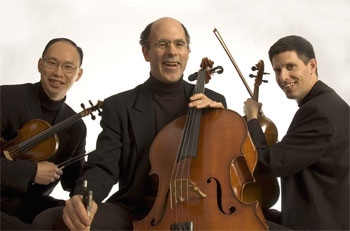Here are Villa-Lobos performances upcoming on
Cultura FM from Sao Paulo.
Listen here on the Internet. Times are local Sao Paulo times, one hour ahead of EST.
Oct. 1
13:00 DELICATESSEN com Kika Leoi:
Georg Phillip TELLEMANN - Sonata "Metodische" para flauta e baixo contínuo. Hans-Joachim Fuss (flauta). Siegfried Petrenz (cravo). / Giacomo PUCCINI - "Intermezzo Atto III" da ópera Manon Lescaut. Kiri te Kanawa (soprano). Orchestre de L'Opéra National de Lyon. Reg.: Kent Nagano. / Heitor VILLA-LOBOS - Choros No. 7 - Settimino. Músicos da Orquestra Sinfônica do Estado de São Paulo. / Louis SPOHR - Concerto para clarinete No.2 em mi bemol maior Op.57. Ernst Ottensamer (clarinete). Orquestra Sinfônica da Rádio Eslovaca. Reg.: Johannes Wildner.
Oct. 8
13:00 DELICATESSEN com Kika Leoi:
Heitor VILLA-LOBOS - Capriccio Op.49. Rebecca Rust (violoncelo). David Apter (piano). / George Joseph VOGLER - Variações sobre "Marlborough, s'en va-t-en guerre". Felicja Blumental (piano). Nova Orquestra de Câmara de Praga. Reg.: Alberta Zedda. / Radamés GNATALLI - Concerto para violoncelo e piano. Orquestra de Câmara Rio Strings. Reg.: Ernani Aguiar.
Oct. 15 (repeated Oct. 16)
13:00 DELICATESSEN com Kika Leoi. Karl Ditters von DITTERSDORF - Quarteto para cordas No.3 em sol maior. Quarteto Franz Schubert. / Heitor VILLA-LOBOS - Deuxième Sonate-Fantasie. Paul Klinck (violino). Claude Coppers (piano). / Enrique GRANADOS - La Maja y el Rulseñor. Roberto Bravo (piano). / Johann Sebastian BACH - "Allemande" da Suíte BWV 1012. Gustav Leonhardt (cravo).
Oct. 17
12:00 CONCERTOS DO MEIO-DIA com o Maestro Walter Lourenção:
Terceira Suíte de "Descobrimento do Brasil" de Heitor VILLA-LOBOS pelo maestro Roberto Duarte.
Oct. 20
22:00 SALA DE CONCERTO:
Heitor VILLA-LOBOS - Bachianas Brasileiras n° 3. Cristina Ortiz (piano). New Philharmonia Orchestra. Reg.: Vladimir Ashkenazy. / Heitor VILLA-LOBOS - Sinfonia n° 1, Op. 112 - O Inesperado. Orquestra Sinfônica da Rádio de Stuttgart. Reg.: Carl St. Clair. / Heitor VILLA-LOBOS - Sinfonia n° 2 - Ascenção. Orquestra Sinfônica da Rádio de Stuttgart. Reg.: Carl St. Clair.
Oct. 21
15:00 TARDE CULTURA - Música e Notícia:
Entre outras obras, Concerto de Brandemburgo n°5 de Johann Sebastian BACH, "A Floresta do Amazonas" de Heitor VILLA-LOBOS e de Johann STRAUSS II, Valsa "Vida de Artista", op. 316.
Oct. 26
22:00 KALEIDOSCÓPIO com Almeida Prado:
Karlheinz STOCKHAUSEN - Gruppen para três orquestras. Orquestra Filarmônica de Berlim. Reg.: Cláudio Abbado. Friedrich Goldman. Marcus Creed./ György KURTÁG - Grabstein para Stephan. Stele. Jürgen Ruck (violão). Orquestra Filarmônica de Berlim. Reg.: Cláudio Abbado./ Heitor VILLA-LOBOS - Pensées d'Enfant. Claudia Riccitelli (soprano). Toninho Carrasqueira (fluta). Diogo Maia (clarinete). Watson Cliss (cello). Reg.: Gil jardim.
Oct. 27
07:00 DESPERTE COM OS CLÁSSICOS:
WAGNER - Abertura da ópera "O Holandês Voador". Orquestra Filarmônica de Munique. Reg.: Hans Knappertsbuch. VILLA-LOBOS - Bachianas Brasileiras n° 5. Barbara Hendricks (soprano). Eldon Fox (violoncelo). Oito Violoncelistas da Filarmônica Real Britânica. / CHOPIN - Polonaise n° 6, op. 53, "Heróica". Elisabeth Leonskaja (piano).
Oct. 28
13:00 DELICATESSEN com Kika Leoi:
Heitor VILLA-LOBOS - Première Sonate-Fantasie (Desesperança). Paul Klinck (violino). Claude Coppers (piano). / Ernesto NAZARETH - Odeon e Duvidoso. Ida Maltese e Sylvia Maltese (piano). / Alexander BORODIN - Quarteto para cordas em ré maior No.2. Quarteto Brodsky.
Oct. 31
15:00 TARDE CULTURA - Música e Notícia:
Entre outras obras, Fantasia-Polonaise, opus 61 de Frederic CHOPIN, Trechos de "Romeu e Julieta" de Sergei PROKOFIEV e "Uirapurú", balé para orquestra de VILLA-LOBOS.

 The violinophone is also called the Stroh violin (referred to by Eschig as a cythara do arco). The Wikipedia article doesn't mention any use by classical composers, though the instrument was apparently in vogue in Buenos Aires in the 1920s. This is another example (along with the use of a prepared piano in Choros #08) of Villa-Lobos being ahead of the curve technology-wise.
The violinophone is also called the Stroh violin (referred to by Eschig as a cythara do arco). The Wikipedia article doesn't mention any use by classical composers, though the instrument was apparently in vogue in Buenos Aires in the 1920s. This is another example (along with the use of a prepared piano in Choros #08) of Villa-Lobos being ahead of the curve technology-wise.



